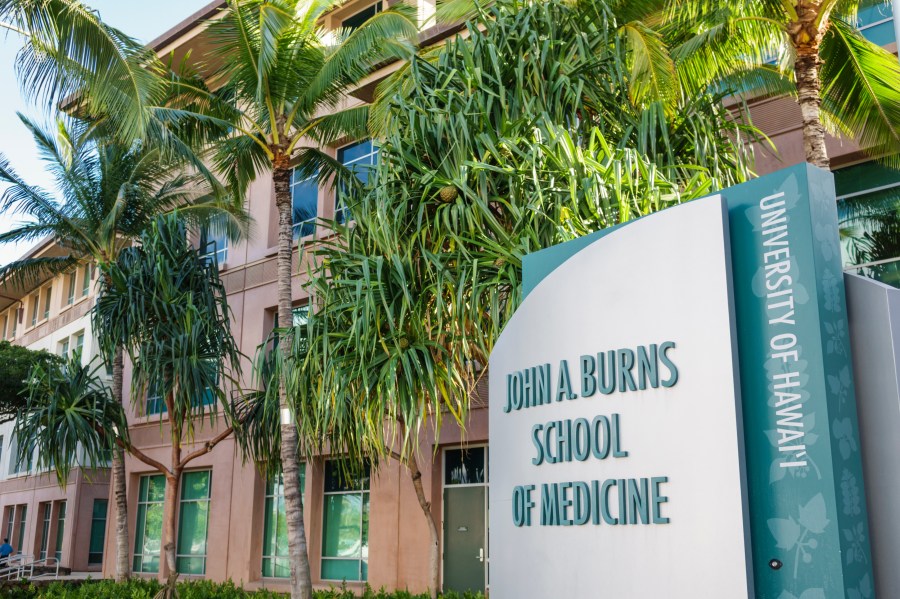Did you know that for every dollar the John A. Burns School of Medicine (JABSOM) gets in grants, $2.64 is added to Hawaiʻi’s economy? This is because most of the money (about 80%) from these grants goes to hiring people in Hawaiʻi to do the research.
When JABSOM got a 5-year renewal of a special grant from the National Institutes of Health for diabetes research, it helped Hawaiʻi’s economy.
The American Diabetes Association says that 10.6% of adults in Hawaiʻi have diabetes. For Native Hawaiians, Pacific Islanders and Filipinos, this number is 2-3 times higher (20-30%).
Some researchers at JABSOM work with the community to promote healthier diets and exercise. The new grant will help them understand why diabetes occurs more often in some people and why some are at high risk for complications like kidney damage, heart failure and dementia. This research aims to prevent these problems in different populations.
The grant also helps our economy by creating jobs and training local researchers who will stay in Hawaiʻi to continue this important work.
Diabetes is a big issue in Hawaiʻi, so JABSOM’s research is essential. Dr. Mariana Gerschenson, Associate Dean for Research at JABSOM, announced that the Diabetes Research Center received another $11.7 million for its second funding cycle. This brings the total funding to $23 million for the University of Hawaiʻi at Mānoa.
Dr. Gerschenson said, “In Hawaiʻi, about 10.6% of people have diabetes, and around 37% have prediabetes.” The Center’s work is critical, with half the state’s population affected.
The Diabetes Research Center studies biology and molecular mechanisms to understand how prediabetes turns into diabetes and addresses complications like kidney, heart and brain diseases.
One key researcher, Dr. Tyler Ray, is developing wearable health monitoring devices that use sweat as a diagnostic fluid. His innovative sweat sensors aim to provide noninvasive measures of kidney function, which could help detect kidney disease early in people with diabetes.
Dr. Marjorie Mau, an endocrinologist and scientist at the Medical School Department of Native Hawaiian Health, focuses on diabetes and related health issues in Native Hawaiians, Pacific Islanders and Filipinos. As the Center’s Deputy Director, she supports scientists and helps connect research with community health.
Dr. Kathryn Schunke, an Assistant Professor at JABSOM, studies diabetic cardiomyopathy, a heart complication of diabetes. Her research looks at how the brain communicates with the heart in this disease and aims to improve heart health in diabetic patients.
Dr. Stacy Brown, a physician-scientist, studies the genetics of diabetes and stroke in Native Hawaiians and Pacific Islanders. She wants to understand how diabetes genetics contribute to stroke development.
Dr. Noemi Polgar, a researcher in skeletal muscle metabolism, studies how glucose (sugar) is transported into cells. Her findings are important because skeletal muscle is responsible for over 80% of sugar uptake after a meal.
The efforts of these researchers show the Center’s comprehensive approach to diabetes research. Dr. Gerschenson said, “We are interested in studying complications of diabetes in the next five years because that has become a problem in Hawaiʻi.”
With a diverse team working on various aspects of diabetes, the University of Hawaiʻi’s Diabetes Research Center is leading the way in scientific discovery and addressing local and global health challenges.
